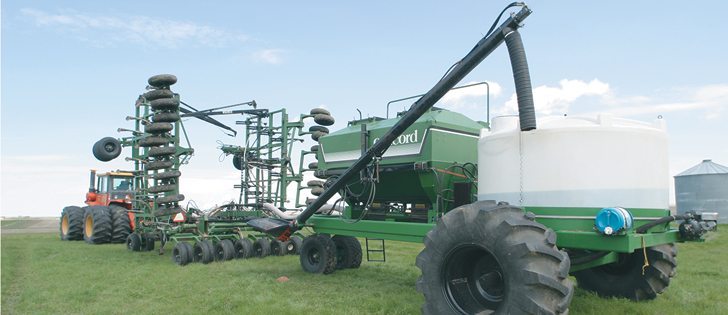Something has recently happened in Saskatchewan that should be of great concern to all of the province’s producers.
Indeed, it is a larger single issue than market or weather conditions over the next year.
Leading political journalists have begun talking about the PST exemptions for farmers, specifically how much the exemptions would add to the province’s general revenue fund if they were removed.
This is happening because the provincial budget will be facing extreme pressures due to dropping commodity prices.
More concerning is the continuing drop in the number of active farmers. It’s got to the point where the number of direct producers is significantly smaller than restaurant employees or miners.
Read Also

Farmer ownership cannot be seen as a guarantee for success
It’s a powerful movement when people band together to form co-ops and credit unions, but member ownership is no guarantee of success.
As well, the addition of new provincial constituencies has ended farmer control over the reins in the province.
As a result, the value of PST exemptions for agriculture has lost its political capital, and as is the nature of that game, if the farmer gets thrown under the bus for the common good, so be it.
This may not be the sentiment of individual MLAs, but the government is much larger than mere elected interests.
There are many reasons why these statements should be of tremendous concern, including the fact that the government is contemplating their implementation and floating the numbers through journalists.
This is a classic test balloon communications strategy to gauge resistance to the proposal.
Many farmers will be thinking, “but we are the heart of the Saskatchewan Party; this would be a grand betrayal.” This of course would be true. Has such a thing ever happened in politics?
The movement to remove these exemptions, or create new taxes, which is a fairer way to say it, would have massive implications for Sask-atchewan agricultural productivity.
Farmers tend to spend the last portions of their sunk cost budgets on the “frills,” which are the technology shifters.
Let’s look at a theoretical 5,000 acre cereal, pulse and oilseed farm that has an operational budget of $1 million. Certain costs will take priority over others, and the last five percent, or $50,000, will be set aside for specialized marketing or other niche areas. However, that’s the money that will instead have to be spent, at least partly, to pay the new tax.
Let’s say a cost of $10 an acre has been negotiated for a trained agronomist to do field scouting or market coaching over the last five years, and the net result has been an increase of three bushels an acre. The data may not be strong enough to justify this cost.
After all, weather and other agronomic factors in that short span of time could have been responsible for the increase. The science over the long haul will always prove out, although possibly not in its first or second iterations.
The implementation of PST in Sask-atchewan on farm inputs will drive this advancement to a grinding halt. If fertilizer, chemical and seed costs on a 5,000 acre farm are $100 an acre, it would mean an additional $25,000 in PST costs.
Agronomy coaches and marketing advisers are not going to reduce their fees from $10 an acre to $5. Instead, the service contract simply won’t occur.
This doesn’t become meaningfully apparent until the aggregate yield has fallen three bushels an acre. Now the margins are slimmer and the input budget for the following year is $99 an acre, which doesn’t even keep pace with inflation.
As well, the government’s PST tax answer is smaller than the previous year by $250 and the farmer is seriously considering investment options, including the delayed purchase of machinery and vehicles. The farm lives off depreciation as the monetary situation tightens, and it is the small town that suffers.
Farmers are among the most politically active of professions in Canada, through producer groups and more importantly as individuals. Sask-atchewan is fortunate to see so many direct producers holding public office.
However, their individual power may be significantly less than members of the public would assume. As well, the aggregate of the province will not stop making demands on infrastructure, health care and education, and the last thing a government adviser will recommend is less government.
Thus the trial balloons. What will be the reaction to these contemplated changes in the PST and how will it affect your agri-business?
Jason Dearborn is a former Saskatchewan Party MLA who represented Kindersley for two terms. He is the fifth generation to operate the family farm.















